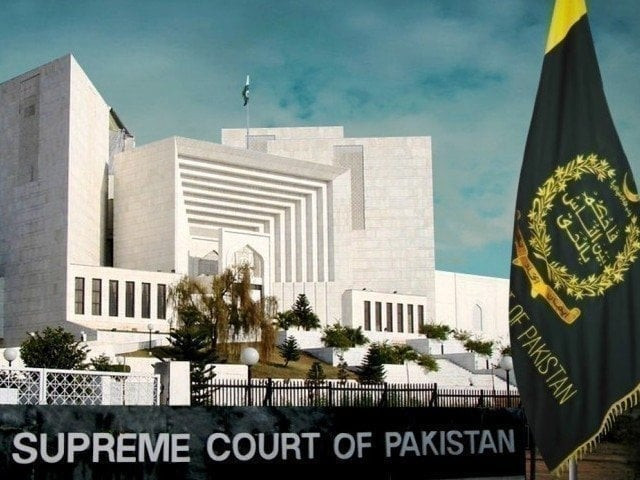Islamabad:
Since the promulgation of the 26th constitutional amendment, the Supreme Court has granted the first compensation to the founder of Pakistan Tehreek-E-insaf (PTI), Imran Khan, by accepting its deposit for eight cases linked to violent incidents of May 9, 2023 on Thursday.
According to Legal Minds, the chief judge of Pakistan (CJP) Yahya Afridi adopted a very cautious order, which could be considered as an attempt to provide a win -win situation to both parties – the accusation and the petitioner.
Many lawyers expected the Supreme Court to send the case to the High Court of Lahore (LHC) – which had rejected the request for release under surety in June – for rehabilitation. However, the SC bench led by the chief judge Afridi gave a deposit.
The court refrained from commenting on the judgment of the LHC who declared Imran Khan, author of the May 9 plot. The lawyers noted that if the LHC had refused to release under bond for conspiracy, the Supreme Court extended a repair in Khan.
The former additional prosecutor Tariq Mahmood Khokhar said that the LHC, while refusing the liberation under bond to Imran Khan, had recorded “defined conclusions” on the disputed facts, thus moving away beyond his jurisdiction, prejudging the trial and undermining the presumption of innocence.
“Such an approach is unacceptable in the jurisprudence of the surety.
Khokhar said that the LHC had made a fundamentally error – whether out of ignorance, incompetence or by Mala. “Many observers unfortunately believe a combination of the three,” he said.
However, he said, more disturbing is the response of the Supreme Court. In paragraph 7 of his order, he noted the “defined conclusions” but did not draw the necessary conclusions. “This omission, both institutional and personal, is surprisingly inexplicable.”
Khokhar believed that the Supreme Court should have reaffirmed the impermismability of these conclusions, disapproved of the observations of the High Court and specified that they should be erased, the procedure of the Non -influenced Court of First Instance.
“In such cases, precedents exist for the restrictions that have succeeded in wandering judges. Even in the middle of the ravages of our judicial, constitutional and democratic ruins, the chief judge had the opportunity to avoid the worst and to improve the moral and public legitimacy of a faulty institution; the opportunity was missed.”
The adjournments of the two previous dates of the hearings gave rise to a perception of the public that the court and the accusation were synchronized, operating in a visible alignment, he continued. He added that the absence of judicial disapproval and dissatisfaction with the “final conclusions” of the High Court strengthened a generally exposed conviction that the chief judge lacked “authority”.
The granting of possible surety was a recovery and therefore the most welcome in the nation here and its diaspora abroad, but unfortunately, it was considered as a consequence not of the judicial affirmation, but of a change in state policy.
Chaudhry Fawad Hussain, who is himself accused in the affairs of May 9, said that the Supreme Court had clearly put aside the depression of the LHC in its decision to reject Imran’s surety, but he stopped reprimanding the LHC judges.
In particular, this is not the first time that the LHC bench has canceled its decision by the Supreme Court. It appeared that some LHC judges positioned themselves as a court of appeal, affirming their opinions above the judgments of the Supreme Court.
Chaudhry said that if the Supreme Court did not limit this trend, it “seriously undermined the hierarchical order of the courts,” he added.
While commenting on the written order, Sarwar Muzaffar Shah Advocate said that the decision had reminded him of a tribute to the American judge Frank Caprio, which he had read earlier in the day. “He was loved and respected because he thought that the law should serve the people; and he did not consider it blind,” said Shah.
While the substance of the order was correct, said Shah, it remained weak. “It follows the motto that the law is blind. This order should have been strong, given what is happening in our country-the erosion of judicial independence by the interference of executives and the weakening of public confidence in our judicial system,” he said.
“An ideal judicial ordinance is that in which the court demonstrates both judicial sense and judicial courage. However, this order does not demonstrate either. It shows that the court plays characteristic in safety. Playing too security is dangerous for the judicial system of our country,” he added.
Since the promulgation of the 26th constitutional amendment, it has been perception that the higher courts have not been able to protect the rights of those owned by the actions of the executive.
“CJ Afridi and the three members of the Constitutional Bancs Committee are considered to be the largest beneficiary of the 26th constitutional amendment. They face a perception battle. CJ Afridi must be aware that the reputation of the institution will be restored by judgments rather than reforms at the agenda with the collaboration of the executive.”




